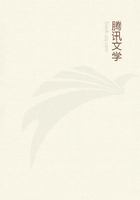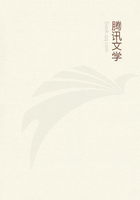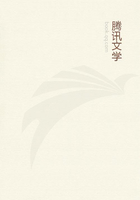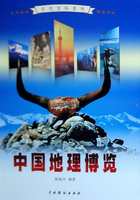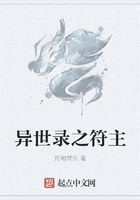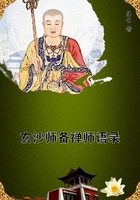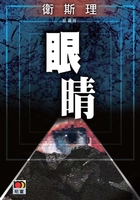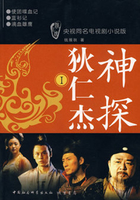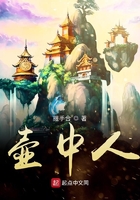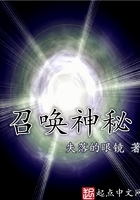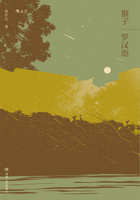Amongst Frenchmen of the highest class, intellectually and socially, he had many valued friends, keeping his name on the "Cosmopolitan" long after he had ceased to visit it, since "one never knows when the distinguished foreigner may come upon one, and of such the Cosmo is the London Paradise." But he used to say that in the other world a good Frenchman becomes an Englishman, a bad Englishman becomes a Frenchman. He saw in the typical Gaul a compound of the tiger and the monkey; noted their want of individuality, their tendency to go in flocks, their susceptibility to panic and to ferocity, to the terror that makes a man kill people, and "the terror that makes him lie down and beg." We remember, too, his dissection of St. Arnaud, as before all things a type of his nation; "he impersonated with singular exactness the idea which our forefathers had in their minds when they spoke of what they called 'a Frenchman;' for although (by cowing the rich and by filling the poor with envy), the great French Revolution had thrown a lasting gloom on the national character, it left this one man untouched. He was bold, gay, reckless, vain; but beneath themere glitter of thesurface there was a great capacity foradministrative business, and a more than common willingness to takeaway human life.""I relish," Kinglake said in 1871, "the spectacle of Bismarck teaching the A B C of Liberal politics to the hapless French. His last MOT, they tell me, is this. Speaking of the extent to which the French Emperor had destroyed his own reputation and put an end to the worship of the old Napoleon, he said: 'He has killed himself and buried his uncle.'" Again, in 1874, noting the CONTRE COUP upon France resulting from the Bismarck and Arnim despatches, he said: "What puzzles the poor dear French is to see that truth and intrepid frankness consist with sound policy and consummate wisdom. How funny it would be, if the French some day, as a novelty, or what they would call a CAPRICE, were to try the effect of truth; "though not naturally honest," as Autolycus says, "were to become so by chance."He thought M. Gallifet DANS SA LOGIQUE in liking the Germans and hating Bismarck; for the Germans, in having their own way, would break up into as many fragments as the best Frenchman could desire, and Bismarck is the real suppressor of France. Throughout the Franco- Prussian war he sided strongly with the Prussians, refusing to dine in houses where the prevailing sympathy with France would make him unwelcome as its declared opponent; but he felt "as a nightmare" the attack on prostrate Paris, "as a blow" the capitulation of Metz; denouncing Gambetta and his colleagues as meeting their disasters only with slanderous shrieks, "possessed by the spirit of that awful Popish woman." Bismarck as a statesman he consistently admired, and deplored his dismissal. I see, he said, all the peril implied by Bismarck's exit, and the advent of his ambitious young Emperor. It is a transition from the known to the unknown, from wisdom, perhaps, to folly.
His Crimean volumes continued to appear; in 1875, 1880, finally in 1887; while the Cabinet Edition was published in 1887-8. This last contained three new Prefaces; in Vol. I. as we have seen, the memorial of Nicholas Kireeff; in Vol. II. the latter half of the original Preface to Vol. I., cancelled thence at Madame Novikoff's request, though now carefullymodified so as to avoid anything which might irritate Russia at a moment when troubles seemed to be clearing away. In his Preface to Vol. VII. he had three objects, to set right the position of Sir E. Hamley, who had been neglected in the despatches; to demolish his friend Lord Bury, who had "questioned my omniscience" in the "Edinburgh Review"; and to exonerate England at large from absurd self-congratulations about the "little Egypt affair," the blame of such exaggeration resting with those whom he called State Showmen.
Silent to acquaintances about the progress of his work, he was communicative to his few intimates, though never reading aloud extracts or allowing them to be seen. In 1872 he would speak pathetically of his "Crimean muddle," perplexed, as he well might be, by the intricacies of Inkerman. Asked if he will not introduce a Te Deum on the fall of Louis Napoleon, he answered that to write without the stimulus of combat would be a task beyond his energy; "when I took the trouble to compose that fourteenth chapter, the wretched Emperor and his gang were at the height of their power in Europe and the world; but now!" He was insatiate as to fresh facts: utilized his acquaintance with Todleben, whom he had first met on his visit to England in 1864; sought out Prince Ourusoff at a later time, and inserted particulars gleaned from him in Vol. IX., Chapter V.
In 1875 he told Madame Novikoff that his task was done so far as Inkerman was concerned, and was proud to think that he had rescued from oblivion the heroism of the Russian troops in what he calls the "Third Period" of the great fight, ignored as it was by all Russian historians of the war. He made fruitless inquiries after a paper said to have been left behind him by Skobeleff, explaining that "India is a cherry to be eaten by Russia, but in two bites"; it was contrary to the general's recorded utterances and probably apocryphal. Russophobe as regarded Turkey, he sneered at England's sentimental support of nationalities as "Platonic": a capital epithet he called it, and envied the Frenchman who applied it to us, declaring that it had turned all the women against us. He was moved by receiving Korniloff's portrait with a kind message from the dead hero's family, seeing in the features aconfirmation of the ideal which he had formed in his own mind and had tried to convey to others. Readers of his book will recall the fine tribute to Korniloff's powers, and the description of his death, in Chapters VI. and XIII. of Vol. IV. (Cabinet Edition).

